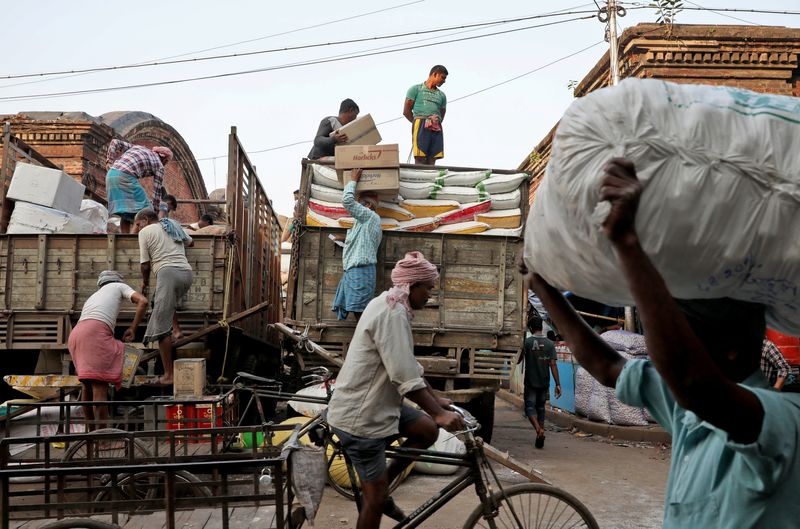By Shaloo Shrivastava
BENGALURU (Reuters) - Growth in India's services industry slumped in September to a six-month low, led by a substantial easing in demand amid high inflation, a private survey showed.
The S&P Global (NYSE:SPGI) India services Purchasing Managers' Index fell to 54.3 in September from August's 57.2, much lower than the Reuters poll expectation for a gentle drop to 57.0.
Despite staying above the 50-mark separating growth from contraction for the fourteenth straight month - the longest stretch of expansion since October 2016 - the index fell to its lowest since March.
"The Indian service sector has overcome many adversities in recent months, with the latest PMI data continuing to show a strong performance despite some loss of growth momentum in September," noted Pollyanna De Lima, economics associate director at S&P Global Market Intelligence.
Although the new business sub-index, a measure of demand, cooled significantly to its lowest since March it was above 50 for the fourteenth month in a row.
International demand, which has not revived since the onset of the pandemic, remained sub-50 amid global woes although the drop in September was the weakest since January.
Demand slowed as firms raised their prices for a nineteenth month as they faced higher energy, food, labour and material costs.
The Reserve Bank of India (RBI) has raised interest rates by 190 basis points since May to stem inflation and offset some of the effects of aggressive U.S. Federal Reserve hikes that have weakened many currencies, including the rupee.
Foreign reserves in India have declined by nearly $100 billion to $545 billion after the RBI tried to shore up the rupee. They were expected to fall to $523 billion by year-end, a Reuters poll found.
"Currency instability poses renewed inflation worries as imported items become more costly, and undoubtedly means that the RBI will continue hiking interest rates to protect the rupee and contain price pressures," added De Lima.
"An upturn in inflation could damage consumer spending, dampen business confidence and test the resilience of the Indian service sector in the coming months."
Hiring in the sector continued for the fourth month but fewer jobs were created compared to August.

The silver lining was the future activity sub-index, which measures optimism, that rose to its highest in almost eight years, giving hopes of brighter growth.
The overall S&P Global India Composite PMI Output Index slowed to 55.1 from 58.2 in August as both manufacturing and services sectors cooled on falling demand.